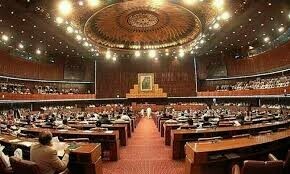
ISLAMABAD: An expected reduction in prices of petroleum products for July because of reduced GST and decline in international prices may be good news for consumers, but it poses a challenge for the government to tide over shortages despite increased imports.
Senior government officials said petrol prices on July 1 were likely to decline by Rs1.30 to Rs1.75 per litre as a result of reduction in general sales tax from 17 to 16 per cent announced in the budget and up to 40 paisa per litre drop in the international market.
An official said the retail price of petrol (motor spirit) was estimated to come down by Rs1.28 per litre to about Rs87 and that of kerosene to about Rs83.50 from Rs84.65 per litre. The price of light diesel oil is expected to drop to about Rs81.38 from Rs82.52 per litre and that of high speed diesel by Rs1.37 per litre to Rs92.75.
The official said oil marketing companies and their dealers were slow in lifting different products to avoid inventory losses they expected to face in case of purchases on higher rates and sales on lower rates.
This is despite the fact that about 120,000 tons of petroleum products had been imported over the past three weeks following non-availability of about 23,000 tons from Attock Refinery Limited because of its closure for maintenance until July 5.
However, in anticipation of falling international prices and lower GST, the marketing companies and dealers have reduced uplifting from depots and port facilities.
It was against this background that senior government officials held meetings on Friday with dealers, marketing companies and port authorities in Karachi to try to send oil through the companies to various parts of the country.
But despite these persuasions and signals for invoking penalty clauses, a number of pockets in various cities remained short of petrol, including Rawalpindi and Islamabad, where maximum supply of products was ensured after an initial shortage about two weeks ago.
The government last month partially deregulated oil prices and allowed the marketing companies to fix prices of petroleum products, except kerosene and aviation fuels. Consequently, the Oil and Gas Regulatory Authority (Ogra) will have no role in fixing prices.
The government had, however, declined a request of the petroleum ministry to completely deregulate oil prices because of opposition from the ANP, JUI-F and PML-Q.













































Dear visitor, the comments section is undergoing an overhaul and will return soon.